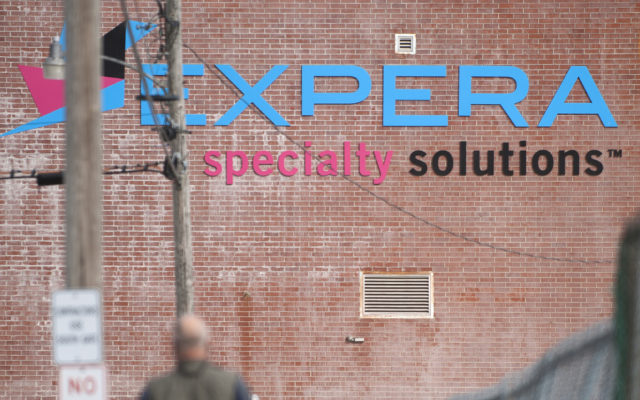
Maine Supreme Judicial Court hears arguments in Old Town v. Expera mill tax abatement case
Maine’s highest court heard oral arguments in a dispute over the actual taxable value of the Old Town mill Thursday morning.
The long-standing dispute between the mill’s former owner, Expera Speciality Solutions, and the city of Old Town landed in the Maine Supreme Judicial Court after a series of appeals over the state Board of Property Review’s granting of a tax abatement to the company.
The hearing was live audio streamed on the state supreme court’s website.
Expera — which purchased the mill from Old Town Fuel & Fiber in 2014 — argues that the city assessed its value higher than what the property was actually worth. The company is seeking a refund of close to $1 million.
At the heart of the matter is whether the mill’s sale was an arms-length transaction, as creditors forced the former company into bankruptcy.
“The question here is whether the bankruptcy sale in December 2014 represented the fair market value of the mill,” Maine Supreme Court Associate Justice Ellen Gorman said during the hearing.
Attorneys Edmond Bearor and Jonathan Hunter are representing Old Town in the case. Bearor previously said that the sale was not an arms-length transaction because it was essentially a distress sale.
During Thursday’s hearing, Hunter said the court should consider the market conditions at the time of the sale, along with the physical state of the mill when Expera purchased it. Hunter said that at the time of the sale, Expera’s own officers described the shuttered mill as “abandoned” and “facing environmental disaster.”
Expera bought the formerly defunct mill for $10.5 million in bankruptcy proceedings from Old Town Fuel & Fiber, with plans to restart production. But that didn’t last long and by September 2015, the facility was shut down again. It later sold for just $2.5 million. Old Town determined the facility’s value to be about $30 million in 2015.
The ND Paper mill’s current taxable value is about $27 million, according to City Assessor Travis Roy.
The company argued that the mill was only worth $7.3 million and that the city assessed its value up to five times more than what Expera paid for it. After the city denied Expera’s request for a $43.7 million reduction in valuation, the mill owner brought the matter before the Maine State Board of Property Review, which also denied the tax abatement request.
Expera appealed the board’s decision in superior court, which sent the dispute back to the board. Overturning its original decision, the board then ruled in favor of the company. Superior Court Justice William Anderson also upheld the new ruling last June, after the city petitioned for a review.
The city is appealing the decision, arguing that the lower court made a mistake in vacating the board’s initial ruling.
Representing Expera, Attorney Jonathan Block said Thursday that the municipality’s claim that the 2014 sale wasn’t an arms-length transaction goes against the board’s factual findings in its review of the mill’s value.
“That finding cannot be second guessed in this appeal,” Block said. “The parties were not distressed.” Block also said the board failed to give enough weight to the sale of the mill in its original decision to deny Expera a tax abatement.
In addition to the arms-length transaction dispute, the parties argue about the validity of the board’s vote on Expera’s request without all members present.
Bearor, Old Town’s attorney, previously said that only three out of the five members showed up to vote on the property tax dispute — not enough to make the vote valid. Block said he didn’t think there was an issue of this on Thursday, claiming that if enough members are present for a quorum, a majority of that quorum can make a decision.
There is no timeline in which supreme court justices must issue a decision.